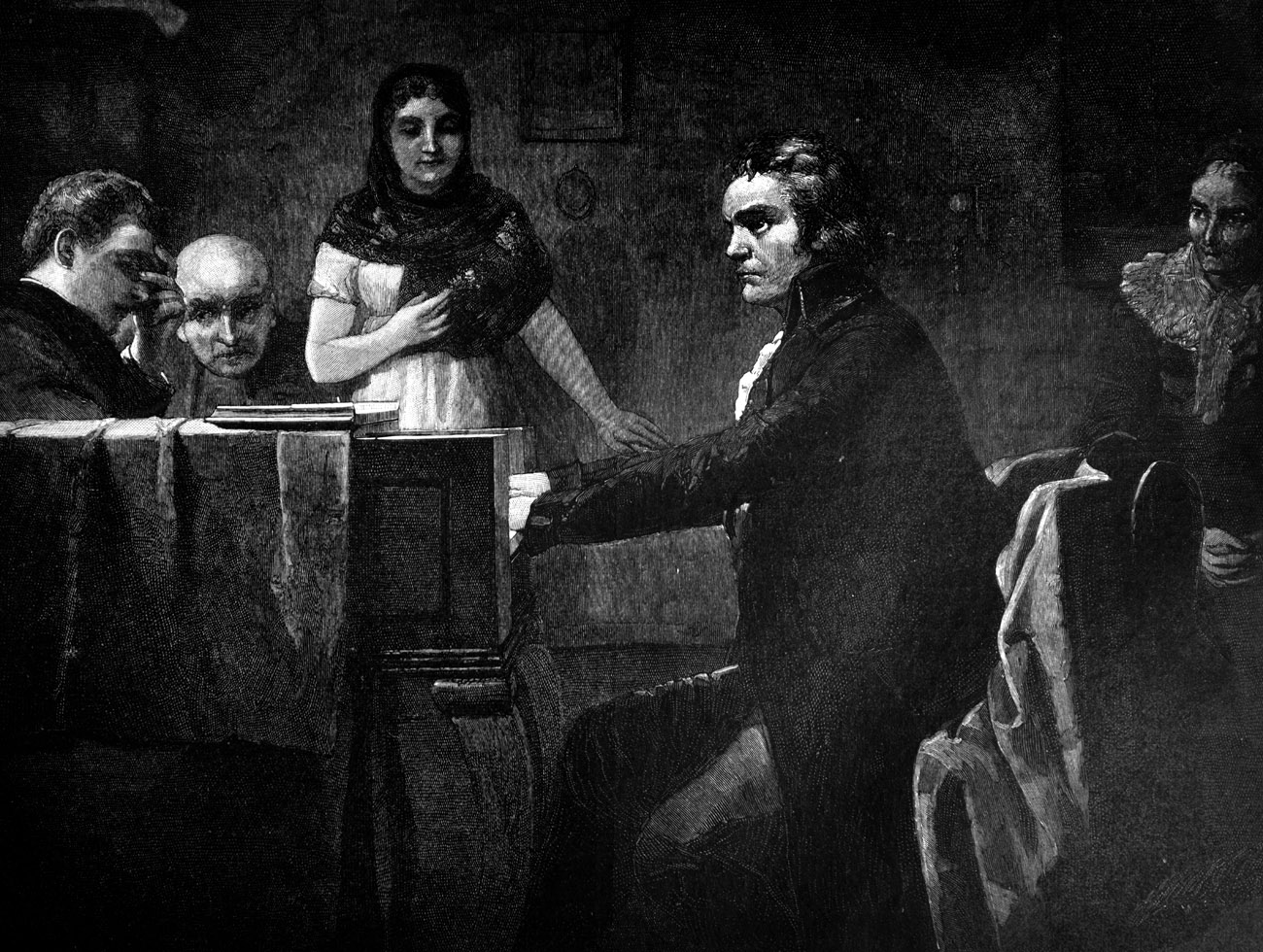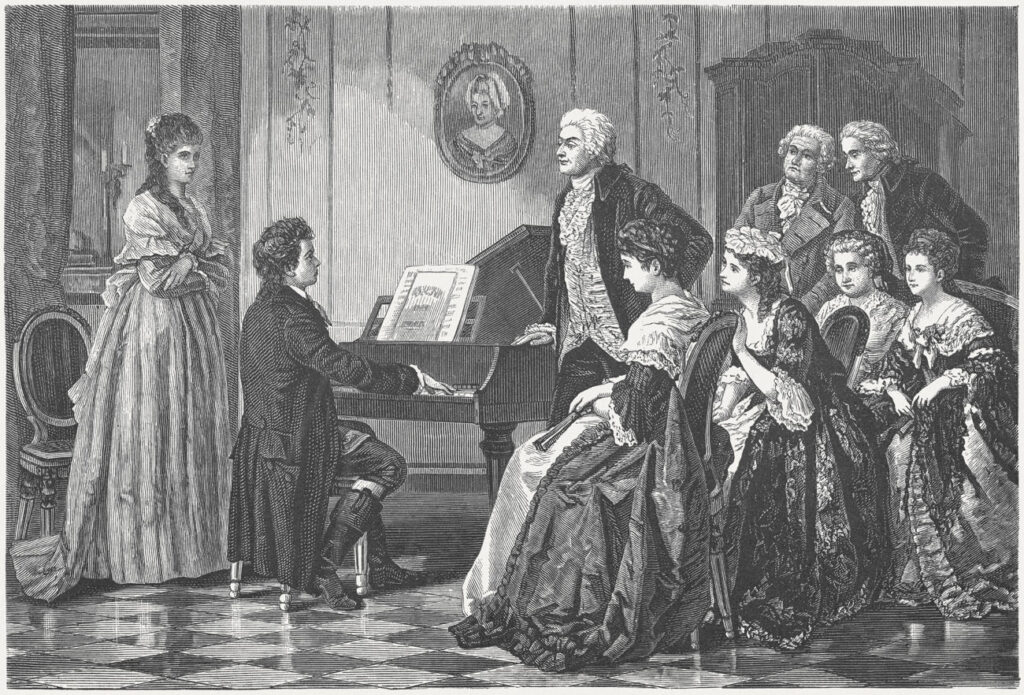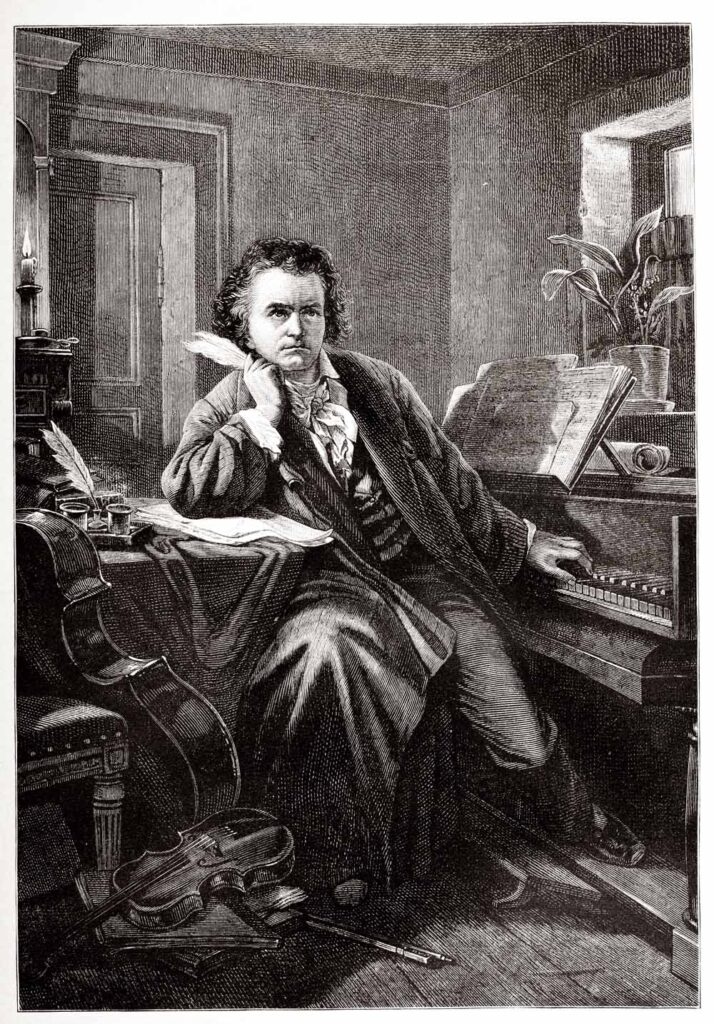

There may be no more well-known name in the world of music than Ludwig van Beethoven. This German composer was so great at the piano, they say he forged a new and unique way of playing. Along with an intriguing career as a musician, Beethoven led a very interesting and sometimes confusing life.
Most of Ludwig van Beethoven’s life is an inspiring, yet odd tale – including his birth. Beethoven himself argued that he was born in 1772, despite official records of the Holy Roman Empire stating that he was born in 1770 in Bonn, Germany. Beethoven’s family consisted of many musicians, though none quite as talented as himself.
He began to study music between the ages of four and six with extreme vigor and had quit proper schooling by the age of ten. At one point in his youth, he had said: “music comes to me more readily than words”. With his intense early music education, Beethoven’s father arranged for his son’s first public music recital when he was only seven. The goal of this recital was to gain the attention of Mozart, in order to drive his son to fame. Sadly, the recital didn’t gain much attention. Ludwig wouldn’t gain notoriety in the world of music till later in his life.

Beethoven was the oldest of three children, all of whom lived into adulthood. His mother, Maria Magdalena van Beethoven, was a very proper and refined woman. On the other hand, his father Johann was a cruel man who taught his son music using abusive methods. His father’s profession was as a mediocre court singer, which is perhaps why he was so driven to unlock his son’s musical gift. At the time of his unorthodox lessons, Beethoven was learning violin and clavier from his father while taking additional organist lessons in town. Throughout his early childhood, his biggest source of pride and reverence for music came from his grandfather, Kapellmeister, who was a well-known musician.
At twenty-two, Beethoven moved from Cologne to Vienna to study under some great composers. Included in his group of music teachers was Joseph Haydn, the top composer at the time. After having completed a legendary (though undiscovered) composition at the age of nineteen – he made his public debut three years later.
March 29th, 1795 is the official date for his first major public performance. It is debated exactly what he played that day, but most scholars agree it was his “first” piano concerto in C major. The piece was a huge success both financially and musically. On April 2nd, 1800, Beethoven debuted Symphony No. 1 in C major at the Royal Imperial Theater in Vienna. While he himself would later hate this symphony, saying that he didn’t know how to compose back then, the beauty of the piece made him Europe’s most celebrated composer.
As he continued to compose, he became among the most influential composers ever. He worked on his craft, quickly mastering the styles of the great pianists before him. By the age of twenty-six, he had begun to lose his hearing – a cruel fate for someone who had aspired to compose his whole life. Regardless, in the last ten years of his life, when he was nearly unable to hear, Beethoven composed among the most influential pieces of his career. Some even argue that Beethoven was farther ahead of his time than the pianos he had available to him. Most pianos he used frustrated him due to lack of quality. Finally, in 1817 he discovered Broadwood pianos after being gifted one from Thomas Broadwood. He had, however, lost most of his hearing by then.

One of Beethoven’s most influential pieces was the Eroica: Symphony No. 3 (a piece he wrote for new emperor Napoleon Bonaparte), which has been cited as the most profound pieces of the genre. Perhaps his most well-known composition was Symphony No. 5, whose four ominous notes have stayed relevant through today’s popular culture. Other incredibly famous works accredited to Beethoven include Fur Elise (published 40 years after Beethoven’s death), Symphony No. 7, and his Ninth Symphony Ode to Joy.

Beethoven was considered to be incredibly reclusive and shy. Perhaps this is the reason why he never married, nor had children. However, he did love a married woman; Antonie Brentano. Eventually, he wrote a long and beautiful love letter to her speaking all his feelings but because of his shyness, he never sent it.
One of the greatest hardships in his life came when his brother Caspar died. Beethoven wanted to receive custody of his nephew, so he entered a long and arduous legal battle with his sister in law. After 7 years of arguing, he won custody but not the love of his nephew.
Ludwig was known for being greedy, suspicious, absent-minded and short-fused. This put a lot of strain on his personal relationships as he wasn’t always able to trust his friends or family. By adulthood, he mostly isolated himself from his family and friends.
The great composer with a haunting life died in 1827 of cirrhosis of the liver, ending his attributions to classical music. Ludwig van Beethoven is accredited with being a key figure in a transitional phase of Western music – from Classical to Romantic. He is even placed in the relation of importance with William Shakespeare as one of the greatest artistic creators of all time.
For more information on how to become a legendary composer yourself – or if you’re simply in need of instruments or piano lessons – contact us. We’ll help you to begin or continue your musical journey no matter the instrument, experience, or age.


